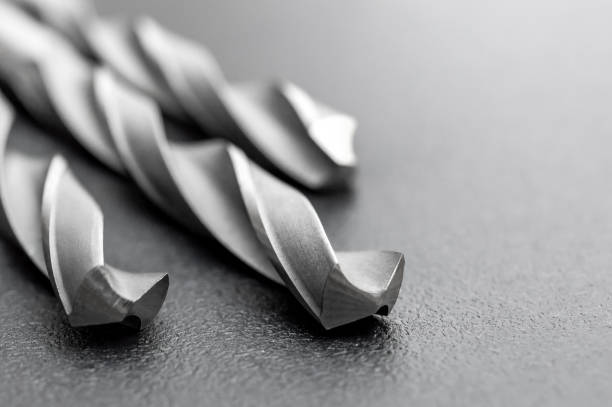Guide To Selecting Router Bits

If you're looking to take your woodworking expertise to the next level, it's essential to have the right tools. One of the most important tools is the router.
There are many kinds and sizes of router bits to meet the requirements of every routing task. They are available in straight and curved profiles as well as discover special-shaped bits utilized to make different types of edge profiles.
Size
There are numerous options for router bits. They are available in a variety of dimensions and shapes, and they are mostly made from HSS or carbide.
Since it can have an effect on the performance of the bit, the compression router bit size is crucial. A smaller bit can run at the same speed than a larger one.
Router bits are available in two shank sizes of 1/4-inch and 1/2. The majority of bits are available in both sizes, but certain bits bodies and shapes can only be used with a 1/2-inch shank.
A bigger shank can provide better stability, greater collet grip, and less deflection. This all makes for an easier user experience and better cut quality.
Material
Router bits are used to create grooves, profiles and joints in a range of wood materials. They are available in a range of sizes and shapes to accommodate different woodworking tasks.
The material used in the construction of the router bits affects its performance as well as how long it lasts. Three main types of material are employed for router bits: HSS, carbide tipped, and carbide.
Carbide tipped bits are more costly, but they will typically hold an edge for longer than HSS and they can be sharpened many times before needing replacement.
Solid carbide bits can be brittle and can break easily when they are used with hard metals such as cast iron or steel. They can be utilized with a wider variety of materials, including hardwoods, MDF, and soft metals like aluminum.
Sharpness
The quality of a router's bit impacts the performance of your woodworking project. A dull router bit could cause scratches on the wood, and can ruin the final result.
It is essential to keep your spiral down-cut router bits sharpened and clean regularly in order to make sure they perform at their best. This will save you from expensive repairs and replacements in the near future.
A sharp and properly maintained router bits can last for years without any problems. But, it is important to remember that not all router bits are created in the same way.
The amount of wear and tear on different types of spiral down-cut router bits is mostly contingent on the frequency of your use and the type of material you work with. Carbide and High-Speed Steel (HSS) bits are the least likely to wear out However, they require regularly sharpening.
Dust Collection
Router bits generate lots of dust and chips, which can cling to clothes hair, tools, and even the surface of the work. Systems for removing dust are crucial for any woodworking shop.
An effective dust removal system is essential when you are planning to move MDF (medium dense fibreboard). MDF is produced by fusing small fragments of hardwood and other woods. It generates lots of fine dust that should be removed and taken care of quickly.
One of the most efficient ways to collect dust is using a dual stage system. They include a separation chamber which captures chips and dust, and an air filter that captures smaller particles.

